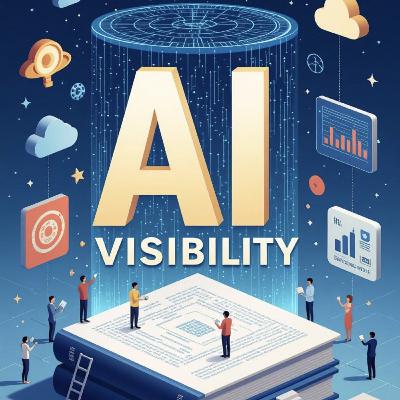The Evolving Landscape of AI, Search, and Content Marketing
Description
1. AI's Transformative Impact on Search and Content
1.1. AI Search Volatility and Citation Drift:
AI search engines (e.g., ChatGPT, Google AI Overviews) are probabilistic, not deterministic, meaning they do not provide the same answer or sources consistently for identical queries. This inherent "controlled randomness" is designed to prevent repetition and embrace diverse perspectives.
- Key Fact: A study measuring "citation drift" (percentage of new domains cited) over a one-month period (June 11-13 to July 11-13, 2025) found significant shifts across major platforms:
- Google AI Overviews: 59.3%
- ChatGPT: 54.1%
- Microsoft Copilot: 53.4%
- Perplexity: 40.5%
- Quote: "Roughly 40-60% of the domains cited in AI responses will be completely different just one month later, even for identical questions."
- Longer Term Volatility: This drift "balloons to 70-90% when comparing January citation domains to July citation domains, showing a roughly linear increase."
- Implication for AI Visibility: Traditional SEO monitoring, which relies on stable rankings, is ineffective. A new approach is required to account for AI's probabilistic nature.
- Essential Monitoring Principles:Continuous Data Collection: Daily or weekly sampling.
- Statistical Significance: Aggregate multiple samples.
- Platform-Specific Strategies: Acknowledge differing drift curves.
- Trend Analysis: Focus on directional trends over time.
- Quote: "Citation drift isn't a bug in AI systems. It's an inherent feature of how these probabilistic models operate. Randomness prevents repetitive responses, pulls in different perspectives, and adapts to changing information landscapes."
1.2. AI Hallucination and its Risks:
AI models, particularly in high-stakes domains like healthcare and law, are prone to "hallucinations"—generating false information or non-existent citations. This poses significant risks if not rigorously verified.
- High-Profile Legal Case: MyPillow CEO Mike Lindell's lawyers were sanctioned for submitting a legal filing "riddled with AI-generated mistakes," including "hallucinated cases, meaning fake cases made up by AI tools."
- Quote: "The use of AI by lawyers in court is not itself illegal. But Wang found that the lawyers violated a federal rule that requires lawyers to certify that claims they make in court are 'well grounded' in the law. Turns out, fake cases don’t meet that bar."
- Growing Trend: Damien Charlotin tracks over 206 cases globally since spring 2025 where generative AI produced hallucinated content in court filings, with cases "popping up every day."
- Types of Hallucinations:Fake cases.
- Fake quotes from real cases.
- Correct citation and case name, but the legal argument cited is not supported by the sourced case.
- Healthcare AI Concerns: Google's Med-Gemini model made a "real error" by conflating "basal ganglia" and "basilar artery" into a non-existent body part, "basilar ganglia."
- Quote: "What you’re talking about is super dangerous... Two letters, but it’s a big deal." - Maulin Shah, Chief Medical Information Officer at Providence.
- Automation Bias: Medical professionals may be less likely to double-check AI-generated text due to automation bias, especially when it is often accurate, exacerbating the problem of propagating errors.
- Quote: "In my mind, AI has to have a way higher bar of error than a human... Otherwise, I’ll just keep my humans doing the work." - Maulin Shah.
- Mitigation: Experts advocate for "augmentation of healthcare professionals instead of replacing clinical aspects" and implementing "real-time hallucination detection" or "confabulation alerts." The advice for anyone using AI is to "Trust nothing — verify everything."
1.3. AI's Expansion of Search, Not Replacement:
Contrary to initial concerns, ChatGPT and other generative AI tools are not replacing traditional search engines like Google; instead, they are expanding overall information-seeking behavior.





